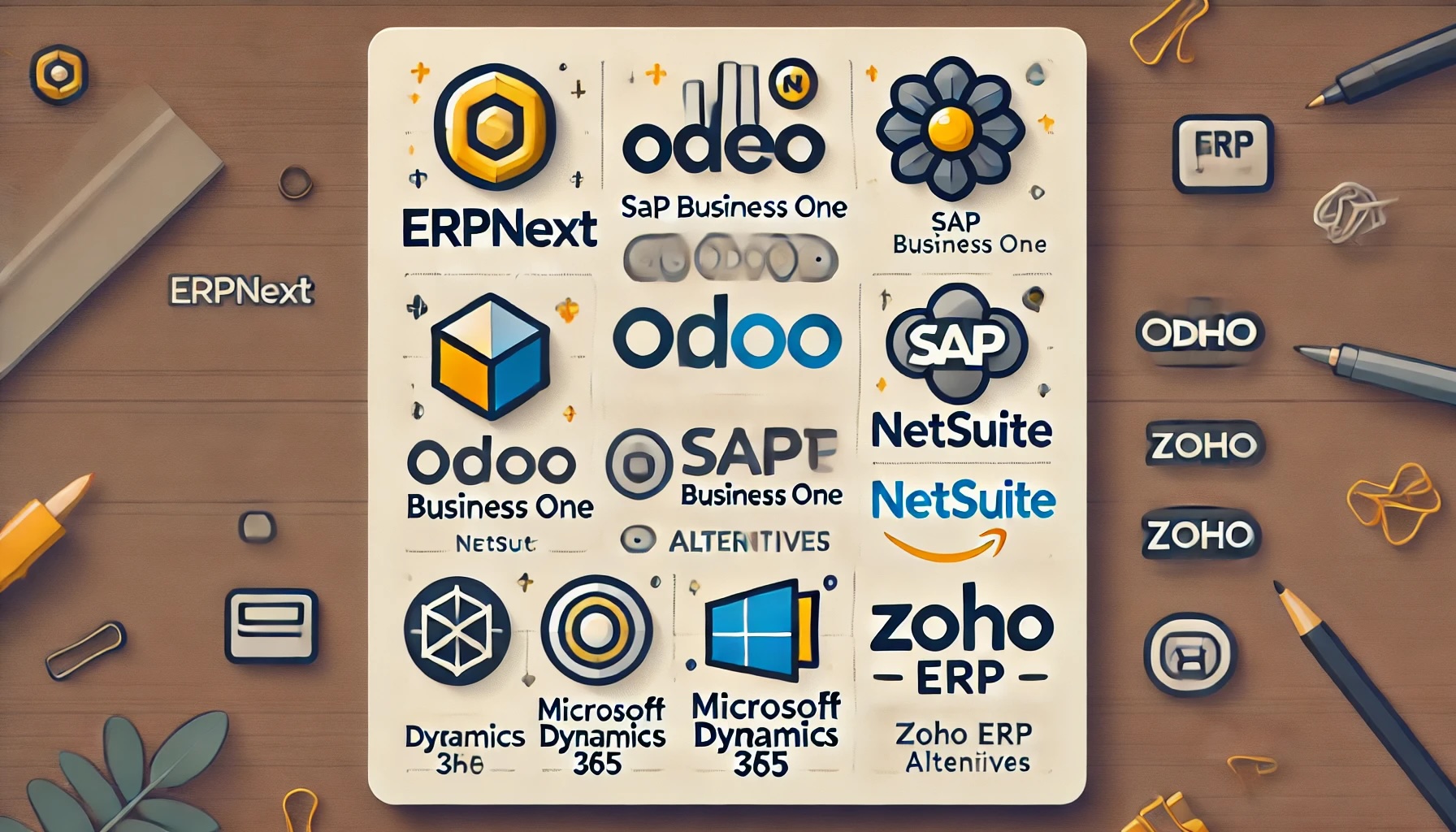Is Epicor the Best Choice for Telecommunications Companies?

In an industry as dynamic and complex as telecommunications, companies face significant challenges related to data management, operational efficiency, and customer service. Enterprise Resource Planning (ERP) solutions are critical for managing these challenges, and while there are numerous ERP providers on the market, Epicor has emerged as a noteworthy option for businesses looking to optimize operations. But is Epicor the best choice for telecommunications companies? Let’s explore how Epicor stands up against other ERP systems, focusing on its features, benefits, and limitations in the telecommunications landscape.
Understanding the Telecommunications Industry Needs
The telecommunications sector operates at a breakneck speed and requires constant adaptation to technological advancements, evolving customer expectations, and competitive pressures. This industry demands ERP solutions that can handle:
- Complex Billing Processes: Telecommunications companies offer multiple service packages, which require accurate billing, invoicing, and pricing.
- Data Management and Analytics: Massive amounts of data flow daily, requiring robust analytics tools for customer insights and forecasting.
- Regulatory Compliance: Compliance with data privacy laws, regulatory policies, and reporting standards is essential.
- Customer Service Optimization: High customer churn rates in telecom make CRM integration crucial to improve service quality and customer loyalty.
An effective ERP for telecommunications should integrate seamlessly with these needs, offering real-time data management, analytics, flexibility, and scalability.
Key Features of Epicor for Telecommunications
Epicor is an established ERP provider that has developed its solutions around the manufacturing and distribution sectors, but it has also expanded into various other industries, including telecommunications. Here’s a closer look at the core functionalities that make Epicor a contender for telecom companies:
- Flexible Deployment Options: Epicor offers both cloud and on-premises deployment models, which is ideal for telecommunications companies with varying needs for control, data accessibility, and security. Cloud-based deployment offers scalability, while on-premises systems provide greater customization options and control over data.
- Comprehensive Data Analytics: Epicor’s data analytics suite allows telecom companies to harness data for customer behavior analysis, service usage trends, and predictive maintenance. This is vital for businesses that rely on real-time decision-making based on accurate, up-to-date information.
- Robust Financial Management: Epicor’s financial tools can handle complex billing structures, track revenue, and manage expenses. It simplifies the intricate financial workflows typical in telecom companies, allowing finance teams to generate accurate reports and ensure regulatory compliance.
- CRM Integration: Epicor offers CRM tools that can improve customer relationship management, helping telecom companies streamline service requests, manage interactions, and track feedback. With this integration, companies can better manage customer expectations, potentially reducing churn and improving customer satisfaction.
- Customizable Workflows: Epicor’s customization capabilities allow telecom companies to tailor their workflows to match their unique business processes. Customization is critical in telecommunications, where companies often have complex processes around service delivery, network maintenance, and customer support.
Benefits of Epicor for Telecommunications Companies
Telecommunications companies considering Epicor as their ERP solution can benefit in several ways:
- Improved Operational Efficiency: Epicor’s integration capabilities allow companies to connect all aspects of their operations, reducing data silos and improving visibility across departments. This leads to more efficient workflows, particularly around resource management, billing, and customer service.
- Enhanced Customer Experience: With Epicor’s CRM and data analytics tools, telecom companies can gain insights into customer behavior and preferences. This can be leveraged to provide personalized service offerings, identify customer pain points, and make data-driven improvements to service delivery.
- Scalability: As telecom companies grow, Epicor’s modular structure allows them to add functionalities as needed, ensuring the ERP system grows with the business. This scalability makes it suitable for both small telecom startups and large, established providers.
- Improved Regulatory Compliance: Epicor’s built-in compliance and reporting tools help telecom companies adhere to industry regulations more easily. With regular software updates that include compliance features, Epicor minimizes the risk of non-compliance in an ever-changing regulatory landscape.
- Cost-Effectiveness: By streamlining operations, reducing redundant processes, and enhancing resource management, Epicor can lead to cost savings over time. This can be particularly appealing in the telecom sector, where operational costs are high.
Limitations of Epicor for Telecommunications Companies
While Epicor has various advantages, there are also some potential drawbacks for telecom companies to consider:
- Industry-Specific Customization: Epicor was initially designed with manufacturing and distribution in mind, so some telecommunications companies might find it lacks certain industry-specific features out of the box. Customization is often required to adapt Epicor’s functionalities to meet telecom-specific needs, which can add time and cost to implementation.
- Complex Implementation: Epicor’s powerful features and extensive customization capabilities can lead to a complex implementation process, especially for companies with intricate workflows. Without a dedicated IT team or ERP consultant, companies may find the setup phase challenging.
- Ongoing Maintenance and Upgrades: Like many ERP solutions, Epicor requires periodic maintenance, updates, and potential upgrades. For telecom companies without a dedicated IT team, this can lead to additional costs and potential downtime during upgrade cycles.
Alternatives to Epicor for Telecommunications Companies
For companies looking to explore ERP options beyond Epicor, there are several other industry-specific ERP providers worth considering:
- Oracle NetSuite: Known for its robust financial capabilities and extensive analytics, NetSuite offers strong features for large-scale telecommunications operations. It provides advanced billing management and real-time data analytics, though it may come at a higher price point.
- SAP S/4HANA: SAP’s ERP solution is highly customizable and widely used across industries, including telecommunications. It offers sophisticated data integration and CRM capabilities but is generally more complex and expensive to implement than Epicor.
- Microsoft Dynamics 365: Microsoft Dynamics is a popular choice for its integration with other Microsoft products, such as Azure and Office 365. It’s flexible and scalable, making it suitable for telecom companies looking for seamless connectivity with their existing Microsoft ecosystems.
Is Epicor the Best Choice?
Epicor is a strong contender for telecommunications companies, especially those prioritizing flexibility, data analytics, and CRM integration in their ERP solution. Its scalability and deployment options make it appealing for companies of varying sizes, and it offers notable improvements in operational efficiency and customer management.
However, Epicor’s suitability will ultimately depend on a company’s specific needs and resources. If a telecom company requires a highly industry-tailored ERP with built-in telecom-specific features, it might consider alternatives like Oracle NetSuite or SAP. But for businesses looking for a customizable, scalable, and cost-effective solution, Epicor is a compelling option that can grow alongside the company, helping it adapt to industry demands and customer expectations.
In conclusion, while Epicor may not be the one-size-fits-all answer, it is undoubtedly a viable choice for telecommunications companies seeking an adaptable ERP platform that supports growth and operational excellence. To find out more about Epicor click this link.
To compare Epicor with 100s of other ERP solutions, you can use our new AI-powered Compare ERP tool. It’s free to use and you get a guaranteed discount on your first year’s licence fees with a referral from Compare ERP.









